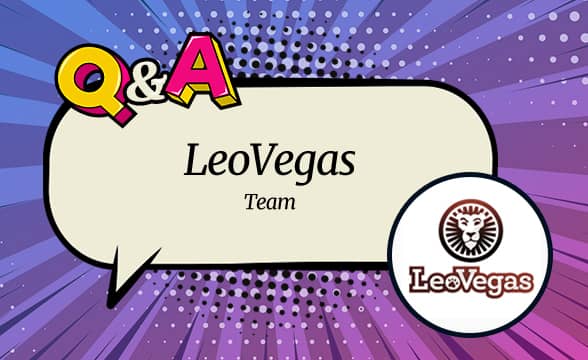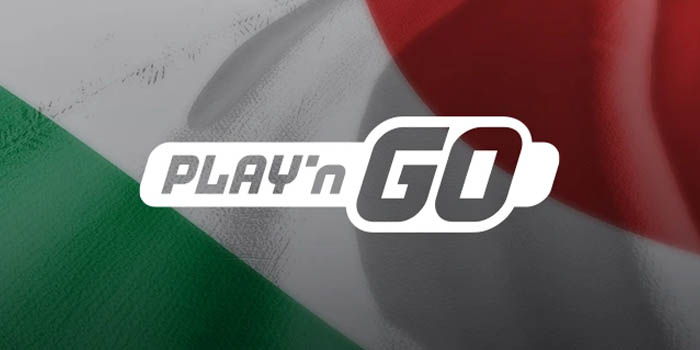LeoVegas Q&A: From Tackling Regulatory Challenges to Gambling Addiction

We spoke with LeoVegas discussing a number of topics, including the regulatory climate in Europe, the United Kingdom and Sweden, compliance challenges, the prospect of breaking into new markets, and helping consumers staying on the right track. Read our full Q&A with one of the leading iGaming companies of our times.
Q: Do you see regulations in Sweden and the United Kingdom as reasonable, and specifically, do you feel that tougher regulatory measures make it more difficult for innovative gambling companies to compete with established ones?
LeoVegas: We need to bear in mind that the aim of regulators and regulation is to ensure that our customers are protected and able to enjoy our product within a safe environment – so with that intention in mind, no regulation should ever seem ‘unreasonable’.
We have seen a significant shift in industry towards a sustainability-focused business model, which demonstrates a clear commitment from operators towards ensuring that the customer is placed at the heart of the business.
Our role in shaping the industry for the better is crucial, and we therefore view this as a common goal, rather than one which is solely of regulators. We believe that the best results in terms of regulation are achieved where there is collaboration between the industry and regulators, and welcome any future collaboration of the sort.
In today’s fast-paced environment, gambling companies, whether new or established, do need to be innovative and adapt to the new and evolving reality of regulated markets. The increase in regulatory measures which we are seeing in the industry naturally has a significant impact on the businesses’ resources, creating a challenge for operators to keep up with changes in regulations.
An additional challenge for multi-jurisdictional operators like ourselves is that the lack of harmonization at EU level has created a fragmented landscape where, although the requirements across different markets have the same overall objective, the granular details differ quite significantly.
This means that businesses need significant resource and expertise to understand and effectively operate each market on a local level. Unfortunately, this level of expertise and resource required generally correlates to the size of the business, so it does follow that the regulatory demands will be harder to adhere to in the case of smaller businesses. From what we can see, the trend is for the regulatory burden and complexity to increase, so it doesn’t look like it will be getting any easier.
Q: What compliance issues remain most challenging to meet?
LeoVegas: Compliance in general presents many challenges, however, the key challenges remain in the more subjective areas, such as responsible gambling. This is an extremely dynamic and fluid area of compliance and is still developing, both from a regulatory perspective, and in terms of the understanding that the industry has around the intricacies of problem gambling.
There is a lot to learn around how to effectively detect a problem gambling issue, how to ensure appropriate action is taken, and how to measure the effectiveness of the interaction we have had with a customer, so it will be interesting to see how the responsible gambling sphere develops in the future.
We have already seen regulators such as the Gambling Commission shifting to a more outcome-based approach through the LCCP changes, with increased focus being placed on measuring the effectiveness of interventions. A key tool for operators going forward will be the effective use of artificial intelligence and machine learning to supplement human intervention.
Another significant challenge lies in ensuring effective control over the suppliers. It will be good to see B2B license regimes develop for key suppliers in the value chain to ensure that there is responsibility for suppliers in the eyes of regulators.
Q: Are you interested in diversifying your offer further and what markets do you have in mind?
LeoVegas: As a growth company, we are constantly reviewing expansion opportunities. Markets which have recently regulated or are soon to be regulated are naturally of high interest.
Q: What do you think about the United States as the next frontier of expansion? Online casinos are perhaps less popular than sportsbooks, which is the key driver of revenue across the U.S., insofar as gambling goes.
LeoVegas: As much as expansion into the U.S. must be done on a state by state basis, ROI lies in the cross-state reach. Online casino licenses are available in far less states than sportsbooks. That said, casino is well rooted in the local entertainment culture and eventually, the different state regulators will catch up with the demand. The potential of that opportunity is tremendous.
Q: The Netherlands seems to be the next market slated to introduce online casinos in Europe. What’s LeoVegas’ plans for the country?
LeoVegas: We have been patiently waiting for regulation to catch up for a long time, with this being an ongoing topic of discussion for almost a decade now. It looks like it’s finally happening, and we are excited to see that. For now, we are awaiting the official start of the license process and carefully monitoring all developments.
Q: Do you see compliance as the best way to overcome competitors in busy markets?
LeoVegas: Definitely. We are all subject to the same requirements, however, the golden question is how to manage these requirements in the best possible way. Ultimately, many of the rules we are subject to are open to interpretation. Therefore, there is a clear competitive advantage for operators who can adapt to the requirements appropriately and swiftly and ensure the processes around those requirements are constantly improved and fine-tuned.
Of course, the presence of unlicensed operators on the market creates an unbalanced playing field, and we therefore need a regulatory environment which protects channelization. If customers are driven to unlicensed operators, this negatively impacts compliant operators, tax revenues, and most importantly, fails to protect the players that need protection the most. The industry should therefore ensure that licensed offerings are competitive and find the best possible way to protect the market from unlicensed operators.
Q: In your experience as an industry leader, do you think that the gambling market is already oversaturated?
LeoVegas: To some extent, yes, at least in some markets. The gambling market is of course huge, and there is still structural growth from land-based gambling moving online, but we are already seeing some markets maturing. At the same time, there are very many operators out there, most of them being small and mid-sized, and many of these will not be able to keep up with the ongoing developments, increased regulatory complexity and higher taxes. Raised barriers to entry will likely benefit operators with size and scale such as ourselves. So, while we expect the gambling market to continue to grow long term, there will likely be less operators around in a couple of years than there are today.
Thank you for your time.
Mike made his mark on the industry at a young age as a consultant to companies that would grow to become regulators. Now he dedicates his weekdays to his new project a the lead editor of GamblingNews.com, aiming to educate the masses on the latest developments in the gambling circuit.















